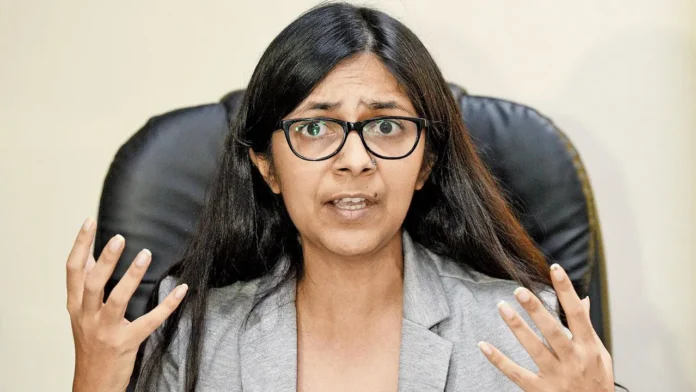In a significant development in the Swati Maliwal assault case, the bail plea of Bibhav Kumar, Personal Assistant (PA) to Delhi Chief Minister Arvind Kejriwal, was rejected by a Delhi court. The court’s decision underscores the serious nature of the charges and the ongoing scrutiny of the case, which has drawn considerable public and media attention.
Swati Maliwal, the chairperson of the Delhi Commission for Women (DCW), lodged a complaint alleging that she was assaulted by Bibhav Kumar. The incident is said to have taken place during an official meeting, where Maliwal claims she was subjected to physical and verbal abuse by Kumar. The complaint, which details the alleged assault, was filed with the police, leading to an investigation and subsequent arrest of Kumar. The case has stirred significant controversy given the political affiliations of the individuals involved. Swati Maliwal, known for her activism and leadership at the DCW, has been a prominent figure in advocating for women’s rights in Delhi. Her accusations against Kumar, a key aide to CM Kejriwal, have led to a politically charged atmosphere, with various political factions weighing in on the matter.
Bibhav Kumar was taken into custody following the complaint, and his legal team promptly filed for bail. The defense argued that the allegations were politically motivated and that there was no substantive evidence to support the claims made by Maliwal. They contended that Kumar had an unblemished record and posed no flight risk or threat to the investigation. However, the prosecution presented a strong case against Kumar, emphasizing the gravity of the charges and the need for a thorough investigation without interference. They argued that granting bail could potentially compromise the investigation, given Kumar’s position and influence.
The court, after considering the arguments from both sides, decided to reject Kumar’s bail plea. In its ruling, the judge highlighted the seriousness of the allegations and the importance of ensuring an impartial and thorough investigation. The court noted that the nature of the charges necessitated a cautious approach, especially given the public interest and potential ramifications of the case. The judge also referenced the evidence presented by the prosecution, which included testimonies and preliminary findings that pointed to a need for further scrutiny. The decision to deny bail was made to prevent any possibility of tampering with evidence or influencing witnesses.
The court’s decision has elicited varied reactions from the political spectrum. Members of the Aam Aadmi Party (AAP), to which both Kejriwal and Maliwal are affiliated, have expressed concern over the incident, calling for a fair and unbiased investigation. They have urged the public to refrain from making premature judgments and to allow the legal process to unfold. Opposition parties, however, have seized upon the incident to criticize the AAP government. They have called for greater accountability and transparency, arguing that the case reflects deeper issues within the administration. Some leaders have demanded the resignation of Kumar from his position as PA to the Chief Minister to ensure that the investigation remains untainted.
The assault case has dominated headlines, with extensive media coverage highlighting the details of the incident and the ensuing legal battle. Public sentiment appears divided, with some expressing support for Maliwal and her courage in coming forward, while others question the timing and motivations behind the allegations. Social media platforms are abuzz with debates and discussions, reflecting the polarized opinions on the matter. Many are calling for justice to be served and for the truth to emerge through a transparent legal process.
The rejection of Bibhav Kumar’s bail plea marks a crucial juncture in the Swati Maliwal assault case. As the investigation progresses, all eyes will be on the legal proceedings and the evidence that unfolds. This case not only highlights issues of workplace harassment and abuse of power but also serves as a test of the judicial system’s ability to handle high-profile and politically sensitive cases impartially.

